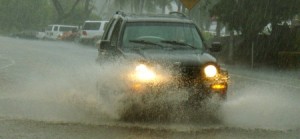If in an intoxicated person injures another, are they always at fault? One set of Texas laws says no. Dram shop liability laws, found in 38 states, say that some fault lies with the barkeep who provided said drunk person with alcohol. The law dates back to when establishments served by the “dram,” or an eighth of a fluid ounce. Anytime blame is said to lie with a party not directly involved in a personal injury case, things get a little tricky. So when exactly can a dram shop liability law be used?
Dram Shop Info
A dram shop liability law works so that a person who was injured by an intoxicated person can sue the establishment that provided alcohol that contributed to that person’s state. The law follows with the line of thinking that believes that once a patron has become clearly intoxicated it falls partially in the hands of the bar staff to prevent them from drinking anymore. Dram shop laws differ from state to state. Some only address the issue of serving underage drinkers. In Texas a patron has to obviously appear as a threat to both themselves and others for the dram shop law to come into play. The state laws say that if you have a license that permits you to serve alcohol then you can become partially responsible to what happens to the people who drink it. The dram shop liability requires the accusing party to prove that:
-
The patron was visibly intoxicated when they were being sold alcohol.
-
Or, that a patron was a minor, and illegally served alcohol.
-
The servers were more than 50% responsible for what happened to the injured party.
Preventing Misuse of the Dram Shop Liability
Many aspects of the dram shop liability are objective. What appears drunk to one person can seem fine to another. Servers are often very busy, and sometimes inappropriate behavior can be easily overlooked. Some people, although highly intoxicated, do not display any of the behaviors characteristic of someone who could potentially cause themselves or others harm. Because of these reasons there are steps businesses can take to protect themselves against dram shop liability. Most of these consist of different employee trainings aimed at preventing dangerous levels of intoxication in the first place. There are also training schools that sellers can attend hosted by the Texas Alcoholic Beverage Commission. Here servers are taught how to more readily recognize intoxicated patrons, how to deal with unruly customers and prudent serving methods.
No matter which side of the dram shop liability it is important you have strong representation in fighting or enacting this liability. Dram shop laws are tricky to navigate. If your legal representation isn’t knowledgeable in the area you could wind up having your case fall out from beneath you. It’s important that you hire lawyers who can best handle the ins and outs of dram shop liability. If you or a loved one has been injured at the hands of a neglectful barkeep call the Law Offices of Crowe, Arnold and Majors today and get the help you need.





